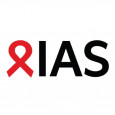IAS – the International AIDS Society – calls on governments of countries with anti-gay laws to abolish this legislation and ground their laws and policies in science.
On this International Day Against Homophobia, Biphobia and Transphobia (IDAHOBIT), the IAS also urges countries that criminalize LGBTQ+ people to respect international human rights law and put people first as all human beings are born free and equal in dignity and rights.
Globally, data linking the criminalization of same-sex relations and HIV acquisition in men who have sex with men is compelling: they are 28 times more likely to acquire HIV than other men. Those living in countries that criminalize same-sex activities are between two and five times more likely to be living with HIV than men in countries without these laws.
“The problem is that communities cannot mobilize if criminalized and persecuted,” according to researchers in a Journal of the International AIDS Society viewpoint for IDAHOBIT 2023. “Nor can they do so if they do not have the resources to have a place to live or to feed themselves. This is why breaking down structural and individual barriers that prevent LGBTQ+ people from organizing and defending their rights is necessary. Every step backwards in human rights will be a step back in the response against HIV.”
It is worrying that many parts of the world are marching backwards on LGBTQ+ and other key populations’ rights. This is strongly influenced by prevailing cultural traditions and religious mores and is currently most visible on the African continent.
As a wave of homophobia sweeps across some parts of Africa and other parts of the world, Uganda’s new version of one of the world’s harshest anti-gay bills simply awaits the signature of the president to become law. At least half of the 67 countries that still criminalize same-sex relationships are in Africa; some of these countries also have the highest burdens of HIV.
In 2021, more than half of new HIV acquisitions in central, eastern, southern and western Africa were among key populations (gay men and other men who have sex with men, people who inject drugs, sex workers and their clients, and trans people) and their sexual partners. Anti-gay laws are associated with a higher HIV rate among men who have sex with men in Africa.
An analysis of HIV testing and engagement with care among men who have sex with men in Africa found that testing and status awareness levels were significantly lower in countries with the most severe anti-gay law than in countries with the least strict legislation.
The IAS notes that harsh anti-gay laws are far from restricted to African countries. Ten countries in the Middle East criminalize same-sex conduct; it is punishable by death in at least four of these countries. In Southeast Asia, the Indonesian parliament passed a criminal code containing provisions that seriously violate the rights of women, religious minorities and the LGBTQ+ community in December 2022.
Indeed, more than 32% of countries still criminalize LGBTQ+ people. There is an urgent need for the governments of these countries to work with, not against, communities most vulnerable to HIV.
We applaud the progress of countries that have recently struck out their anti-gay laws, including Singapore, Antigua and Barbuda, Saint Kitts and Nevis, Barbados and the Cook Islands.
A core value at the IAS is putting people first for a world in which HIV no longer presents a threat to public health and individual well-being. We stand in solidarity with the LGBTQ+ community.








Comments
Comments